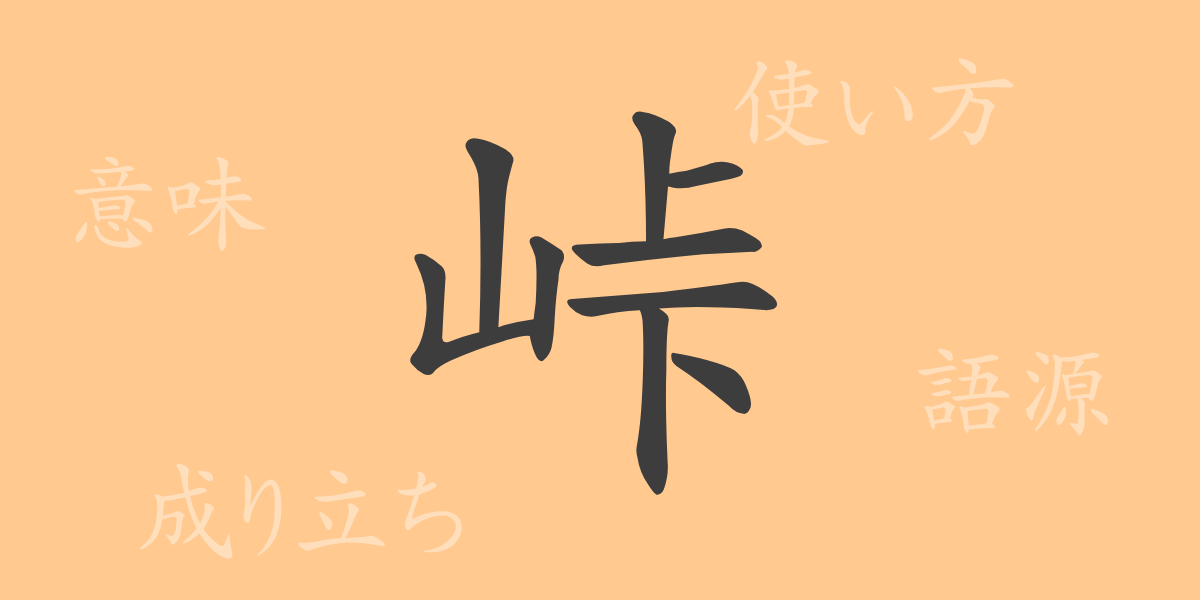Japan’s rich nature and history resonate deeply with the character ‘峠’ (とうげ). More than just a geographical feature, ‘峠’ embodies profound meanings and reflects the cultural essence of the Japanese people. Crossing mountain passes, more than just paths, they serve as pivotal moments in journeys, featuring in many stories and poems. This article delves into the Kanji ‘峠’, exploring its origins, meanings, usages, readings, stroke count, and radicals, and discusses idioms and proverbs involving ‘峠’, unveiling its allure.
Origins of ‘峠’ (とうげ)
The origin of the Kanji ‘峠’ dates back to ancient China, initially representing the highest part of a path crossing a mountain. This character combines ‘山’ (mountain) with ‘上’ (up) and ‘下’ (down), symbolizing the climb and descent. Historically, crossing these passes facilitated regional interactions and cultural exchanges. ‘峠’ has been emblematic, both literally and metaphorically, of overcoming numerous challenges.
Meaning and Usage of ‘峠’ (とうげ)
‘峠’ specifically denotes the highest point on a mountain road, pivotal for traversing mountainous terrains. Broadly, it metaphorically represents a critical turning point or climax in overcoming difficulties or challenges, such as in the phrase ‘crossing the life’s peak,’ symbolizing significant life transitions and growth.
Reading, Stroke Count, and Radical of ‘峠’ (とうげ)
The Kanji ‘峠’ has a unique reading and structural composition specific to the Japanese language:
- Reading: Kun’yomi ‘とうげ’
- Stroke Count: 9 strokes
- Radical: Mountain (やまへん)
Idioms, Phrases, and Proverbs Using ‘峠’ (とうげ)
Idioms and proverbs featuring ‘峠’ derive from its literal and metaphorical associations with mountainous paths:
- ‘峠を越える’ (とうげをこえる) – To overcome difficulties or crises, used to mark significant milestones in life or projects.
- ‘峠の茶屋’ (とうげのちゃや) – Historically refers to teahouses where travelers rested, now symbolizing a place or moment for rest and reflection.
Conclusion on ‘峠’ (とうげ)
The Kanji ‘峠’ transcends its physical representation to embed deep cultural and life significances. As a feature of nature, it has played a crucial role in facilitating human movement and cultural exchanges from historical to modern times. Metaphorically, it resonates with overcoming life’s adversities, finding widespread relevance and empathy. This single character encapsulates the beauty of Japan’s landscapes and philosophical views on life’s ebbs and flows.

























